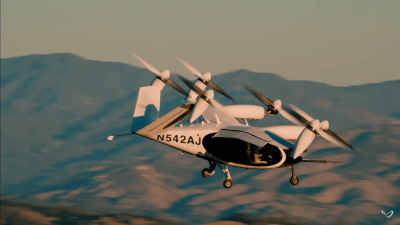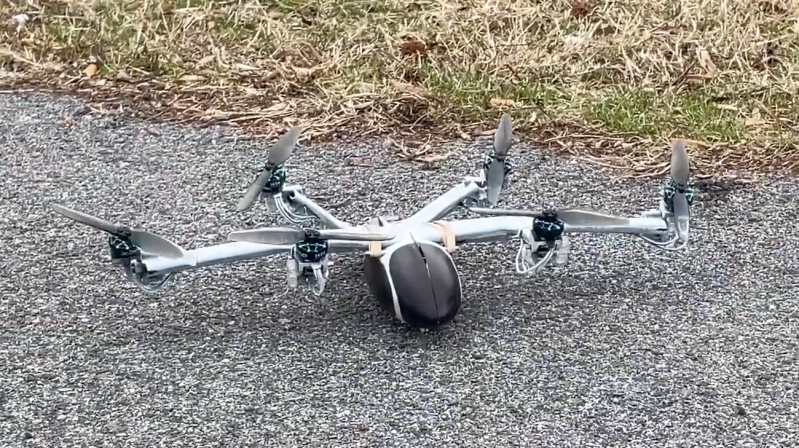eVTOL (Electric Vertical Take-off and Landing) craft are some of the more exciting air vehicles being developed lately. They aim to combine the maneuverability and landing benefits of helicopters with the environmental benefits of electric drive, and are often touted as the only way air taxis could ever be practical. The aircraft from Joby Aviation are some of the most advanced in this space, and [Peter Ryseck] set about building a radio-controlled model that flies in the same way.

The result is mighty complex, with six tilt rotors controlled via servos for the utmost in maneuverability. These allow the vehicle to take off vertically, while allowing the rotors to tilt horizontally for better efficiency in forward flight, as seen on the Bell-Boeing V-22 Osprey.
The build uses a 3D-printed chassis which made implementing all the tilt rotor mounts and mechanisms as straightforward as possible. A Teensy flight controller is responsible for controlling the craft, running the dRehmFlight VTOL firmware. The assembled craft only weighs 320 grams including battery; an impressive achievement given the extra motors and servos used relative to a regular quadcopter build.
With some tuning, hovering flight proved relatively easy to achieve. The inner four motors are used like a traditional quadcopter in this mode, constantly varying RPM to keep the craft stable. The outer two motors are then pivoted as needed for additional control authority.
In forward flight, pitch is controlled by adjusting the angle of the central four motors. Roll is achieved by tilting the rotors on either side of the plane’s central axis, and yaw control is provided by differential thrust. In the transitional period between modes, simple interpolation is used between both modes until transition is complete.
Outdoor flight testing showed the vehicle is readily capable of graceful forward flight much like a conventional fixed wing plane. In the hover mode, it just looks like any other multirotor. Overall, it’s a great demonstration of what it takes to build a successful tilt rotor craft.
We’ve seen tilt rotor UAVs before, and they’re as cool as they are complicated to build. Video after the break.
















wow, putting rotors on the tail surface of a forward-motion airplane. far out! who needs ‘control surfaces’?
Looking forward to seeing flights of the PID. improved version of Joby and FPV-enable ament
You should fail rotors in different locations to demonstrate flying characteristics during such failures. That is actual useful safety data.